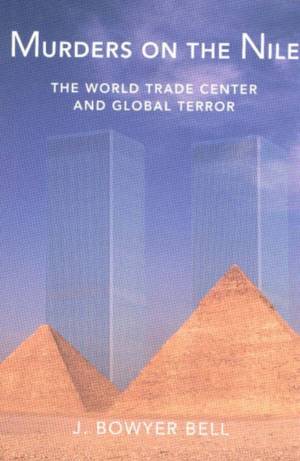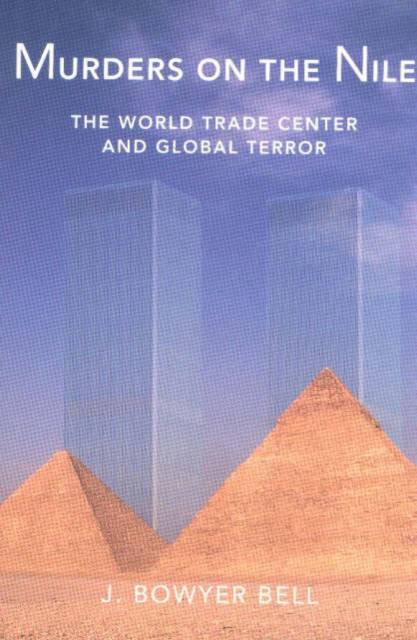
- Retrait gratuit dans votre magasin Club
- 7.000.000 titres dans notre catalogue
- Payer en toute sécurité
- Toujours un magasin près de chez vous
- Retrait gratuit dans votre magasin Club
- 7.000.0000 titres dans notre catalogue
- Payer en toute sécurité
- Toujours un magasin près de chez vous
Murders on the Nile, the World Trade Center and Global Terror
The World Trade Center and Global Terror
J Bowyer Bell
Livre relié | Anglais
37,45 €
+ 74 points
Description
In Murder on the Nile, the World Trade Center and Global Terror, J. Bowyer Bell takes us back to the cradle of Islamic discontent, showing how Islamic terror arose along the banks of the Nile a century ago amidst the grievances of an Egypt held in bondage by foreign imperialists and local despots. Two generations of clerics, sheiks and imams, became obsessed with the luminous appeal of the absolute. And the most zealous of these lethal idealists found in righteous murder -- a holy war -- a proper means to shape an ideal Islamic society free from the contaminating influence of Westernization. Believing that they possess the absolute truth, they were willing to deploy terror to bring this truth to pass. They murdered British soldiers and local politicians, eventually tried to murder Nasser and murdered Sadat. Bell shows how this movement which originated in Egypt spread to the rest of the Islamic world which also became converted to the notion of redemption through jihad. Egyptian exiles, dispossessed Palestinians, Afghan Arabs created an underground world filled with dreams of violence, freedom, and vengeance as a way of returning to the paradise of an imagined past. By the end of the century, these zealots had filled their ranks with idealists and bigots, hijackers and holy men, charismatic leaders and men on the street. In describing this genealogy of terror, Bell shows how what began almost one hundred years ago along the Nile gradually became a global conspiracy found not only along the Nile but ultimately along the Hudson as well. After reading Murder on the Nile we understand that the righteous terrorists whose movement began a century ago in Egypt are the voice of the past, powerful and evocative, but not necessarily the sound of the future if we force ourselves to understand and cope with their world and worldview.
Spécifications
Parties prenantes
- Auteur(s) :
- Editeur:
Contenu
- Nombre de pages :
- 224
- Langue:
- Anglais
Caractéristiques
- EAN:
- 9781893554634
- Date de parution :
- 01-02-03
- Format:
- Livre relié
- Format numérique:
- Genaaid
- Dimensions :
- 161 mm x 237 mm
- Poids :
- 476 g

Les avis
Nous publions uniquement les avis qui respectent les conditions requises. Consultez nos conditions pour les avis.






